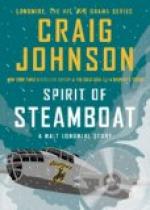I.
The events which I am about to relate took place between nine and ten years ago. Sebastopol had fallen in the early spring; the peace of Paris had been concluded since March; our commercial relations with the Russian Empire were but recently renewed; and I, returning home after my first northward journey since the war, was well pleased with the prospect of spending the month of December under the hospitable and thoroughly English roof of my excellent friend Jonathan Jelf, Esquire, of Dumbleton Manor, Clayborough, East Anglia. Travelling in the interests of the well-known firm in which it is my lot to be a junior partner, I had been called upon to visit not only the capitals of Russia and Poland, but had found it also necessary to pass some weeks among the trading-ports of the Baltic; whence it came that the year was already far spent before I again set foot on English soil, and that, instead of shooting pheasants with him, as I had hoped, in October, I came to be my friend’s guest during the more genial Christmastide.
My voyage over, and a few days given up to business in Liverpool and London, I hastened down to Clayborough with all the delight of a school-boy whose holidays are at hand. My way lay by the Great East Anglian line as far as Clayborough station, where I was to be met by one of the Dumbleton carriages and conveyed across the remaining nine miles of country. It was a foggy afternoon, singularly warm for the 4th of December, and I had arranged to leave London by the 4.15 express. The early darkness of winter had already closed in; the lamps were lighted in the carriages; a clinging damp dimmed the windows, adhered to the door-handles, and pervaded all the atmosphere; while the gas-jets at the neighboring bookstand diffused a luminous haze that only served to make the gloom of the terminus more visible. Having arrived some seven minutes before the starting of the train, and, by the connivance of the guard, taken sole possession of an empty compartment, I lighted my travelling-lamp, made myself particularly snug, and settled down to the undisturbed enjoyment of a book and a cigar. Great, therefore, was my disappointment when, at the last moment, a gentleman came hurrying along the platform, glanced into my carriage, opened the locked door with a private key, and stepped in.
It struck me at the first glance that I had seen him before,—a tall, spare man, thin-lipped, light-eyed, with an ungraceful stoop in the shoulders, and scant gray hair worn somewhat long upon the collar. He carried a light water-proof coat, an umbrella, and a large brown japanned deed-box, which last he placed under the seat. This done, he felt carefully in his breast-pocket, as if to make certain of the safety of his purse or pocket-book; laid his umbrella in the netting overhead; spread the water-proof across his knees; and exchanged his hat for a travelling-cap of some Scotch material. By this time the train was moving out of the station, and into the faint gray of the wintry twilight beyond.




